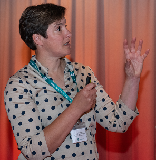We are building:
- A digital preservation community which provides an effective platform for meaningful and sustained professional exchange.
- A climate of public and institutional policy which is better informed and better inclined towards digital preservation.
- Competent and responsive workforces that are ready to address the challenges of digital preservation.
- Greater maturity in digital preservation through knowledge exchange, advice, authoritative publications and informative events.
- Accountable and sustainable organizational functions and structures to ensure good governance.
Digital Preservation Handbook
The Handbook identifies good practice in creating, managing and preserving digital materials. By providing a strategic overview of the key issues, discussion and guidance on strategies and activities, and pointers to key projects and reports, the Handbook provides guidance for institutions and individuals and a range of tools to help them identify and take appropriate actions.
View Handbook
Participate in the Digital Preservation Bake Off (Tools Demonstration) at iPRES 2025
26 June 2025
Submissions are now open for the Great Digital Preservation Bake Off at iPRES 2025, the 21st International Conference on Digital Preservation coming to Wellington later this year!
Read Article
The DPC Members Forum and Networking Event Europe - Impressions of a Newcomer
The DPC Members Forum and Networking Event in The Hague earlier this month gave me the opportunity to get to know my colleagues from across Europe and even worldwide a little bit better, both formally and informally.
Go to Blog
Moving Between Digital Preservation Systems
02 Jul 2025 - 02:00PM
Click here to check your local time.
As digital preservation evolves, more software platforms and preservation systems are becoming available, and organisations have plenty of choice when deciding what ...
